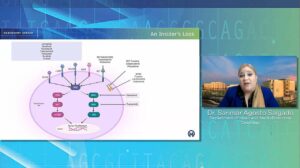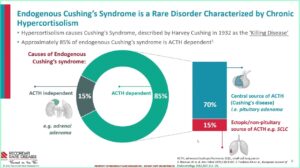NEW YORK (Reuters Health) – Mitotane combined with fast-acting steroidogenesis inhibitors might avoid the need for emergency bilateral adrenalectomy in patients with severe hypercortisolism, French researchers report in a July 13th on-line paper in the Journal of Clinical Endocrinology & Metabolism.
Dr. Jacques Young of Universite Paris-Sud and colleagues note that mitotane is highly effective in the long-term management of Cushing’s syndrome. However, the prolonged onset of its anticortisol activity renders it unsuitable for use in patients with severe hypercortisolism and life-threatening complications.
Metyrapone and ketoconazole, used alone or in combination, are effective in blocking hypercortisolism but frequently fail to control Cushing’s syndrome.
To examine whether mitotane along with metyrapone and ketoconazole might be of use, the researchers studied the approach in 11 patients with severe ACTH-dependent Cushing’s syndrome. Curative surgery was ruled out at this point for reasons including severe complications.
Within 24 to 48 hours of treatment, 24-hour urinary free cortisol excretion fell from a mean of 2737 mcg/g to 50 mcg/g, a value within the normal range, and remained low to normal on combination therapy.
After a mean of 3.5 months, 7 of the patients discontinued metyrapone and ketoconazole and remained controlled by mitotane mono-therapy. Five patients became able to undergo etiological surgery and are in remission. Four of them recovered normal adrenal function after mitotane discontinuation.
In conclusion, say the investigators “when immediate etiological treatment of severe ACTH-dependent Cushing’s syndrome is not feasible, combination therapy… is an effective alternative to emergency bilateral adrenalectomy.”
J Clin Endocrinol Metab 2011.




